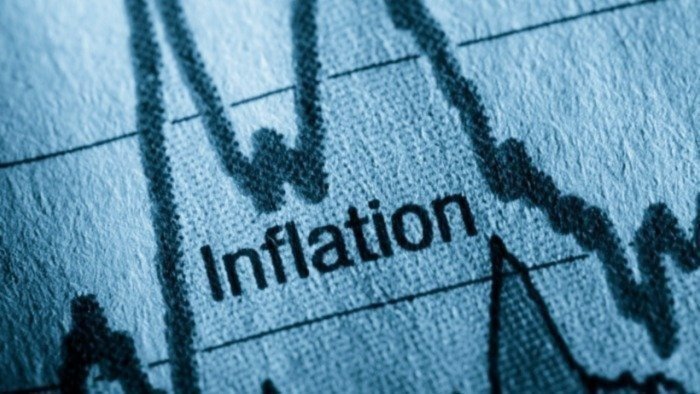- Web
- Today
UK’s stubborn inflation fails to fall, turning up heat on BoE
-

- Hum News
- Jun 21, 2023

LONDON: British inflation defied predictions of a slowdown and held at 8.7% in May, putting yet more pressure on the Bank of England a day before it is expected to raise interest rates for the 13th time in a row.
Markets increased bets on further rate rises following Wednesday’s official figures, which also showed underlying inflation hit its highest since 1992 last month.
The headline figure means British inflation is once again the fastest of any major advanced economy.
The numbers are uncomfortable for Prime Minister Rishi Sunak – who has pledged to halve inflation this year before a probable 2024 election – and are likely to add to the rise in mortgage costs for millions of homeowners.
Economists polled by Reuters had forecast the annual consumer price inflation rate would drop to 8.4% in May, moving further away from October’s 41-year high of 11.1%.
Analysts said the BoE’s Monetary Policy Committee was now likely to increase borrowing costs by more over the coming months. Citi said it expected Bank Rate – which currently stands at 4.5% – to peak at 5.25%, up from its previous 5% call
“While these data are perhaps not quite a ‘break the glass’ moment for the MPC, they look close to us,” Citi economist Benjamin Nabarro said.
Sterling briefly jumped against the U.S. dollar and the euro and two-year government bond yields – which are sensitive to interest rate expectations – touched their highest since 2008.
Markets now see a 40% chance of the BoE raising interest rates from 4.5% to 5% on Thursday and a nearly 100% chance rates will reach 6% by December, even as the economy skirts recession.
Finance minister Jeremy Hunt said the government would “stick to its guns” on cutting inflation and tried to turn the focus on mortgage lenders.
“I want to ensure banks are living up to the commitments we agreed in December, and what more they can do to help,” said Hunt, who will meet bankers on Friday.
Opposition Labour Party leader Keir Starmer accused Sunak’s Conservative Party of triggering a “mortgage catastrophe”.
There was further bad news for Sunak in data showing public sector net debt surpassed 100% of gross domestic product in May for the first time since 1961 despite his promise to bring down debt levels.
Core inflation highest since 1992
Inflation began to rise in 2021, when many economies faced supply-chain bottlenecks caused by the COVID-19 pandemic, and accelerated sharply after Russia’s invasion of Ukraine sent European natural gas prices soaring.
It has fallen more slowly in Britain than elsewhere, partly due to the timing of energy subsidies, and is increasingly evident across broad swathes of the economy.
The Office for National Statistics said core inflation – which excludes volatile food, energy, alcohol and tobacco prices, and which the BoE watches closely – unexpectedly rose to 7.1% from 6.8%, its highest since March 1992.
Services price inflation, which is heavily influenced by fast-rising wages, also reached its highest since 1992 at 7.4%.
May’s inflation also reflected unusually big increases in air fares, second-hand cars, live music events and video games.
Last month saw five concerts in Britain by U.S. singer Beyonce and the launch of Nintendo’s new Zelda video game.
Food and drink price inflation dropped slightly to 18.3% from April’s 19.0%, led lower by milk, cheese and eggs.
J.P. Morgan Asset Management strategist Karen Ward, part of a panel of economists who occasionally advise Hunt, said the sticky inflation figures raised doubts about the BoE’s policy.
“There has been a slight misjudgement at the Bank of England about our domestically generated inflation,” Ward told the BBC. “The hope was that this was external factors that would quickly come and go. It’s clearly not, our economy is running too hot, our labour market is still incredibly tight.”
The BoE might have to effectively “create a recession” to tame an emerging wage-price spiral, she added.
Lower inflation incoming?
Last month the BoE forecast inflation would drop to just over 5% in late 2023 and below its 2% target in early 2025.
Britain is among a handful of countries where the labour market has not returned to its pre-pandemic size, partly due to long-term sickness. Post-Brexit immigration rules also make it harder for employers to recruit low-paid staff.
Data on Wednesday showed annual pay settlements held at a record 6%.
But some relief may be on the horizon, as producer price inflation slowed faster than economists had expected.
Prices charged by manufacturers rose 2.9% in the 12 months to May, less than April’s 5.2% rise and the smallest increase since March 2021.
The BoE’s rate hikes are only feeding through to homeowners with a lag, as most British mortgages have fixed rates for two or five years. Industry data shows 800,000 mortgages are due to be refinanced in the second half of 2023.
ING economist James Smith said falling petrol and energy prices would bring inflation below 7% by July and markets were wrong to think the BoE would raise rates six more times to 6%.
“That seems excessive, and we suspect the Bank of England would privately agree,” Smith said. —Reuters




